What is Social Tourism and How It Is Redefining Travel with Examples

What Does Social Tourism Mean and How It Is Redefining Travel with Examples
The impact on a tourism destination
The tourism industry has its own long list of benefits and detriments. In a tourist destination, money flows into the local economy with booms in tourism development. Businesses emerge, housing values increase. More tax dollars are received for infrastructure and social services progress. Local artisans and entrepreneurs also find new opportunities to showcase their crafts and services, boosting the cultural fabric and economy.
But it can also bring serious challenges with a lack of tourism management. Tourism growth can create mass tourism as tourist numbers explode. Straining local resources, creating huge waste problems and degrading the natural environment. This influx can lead to overcrowding, increasing the strain on infrastructure and leading to higher living costs for residents. The tourist may outprice the locals resulting in a loss of local culture that was there for generations. Furthermore, the over commercialization of cultural heritage sites can lead to the degradation of their authenticity and significance.

What is Social Tourism?
Social tourism is a concept that combines travel with social, cultural, or environmental benefits, focusing on impactful, accessible tourism and social inclusion. It benefits both travelers, local population and the environment when done right.
Like the old campsite rule goes, “Leave it better than when you found it.”

It's not just about visiting new places but also about contributing positively to the local people. Fostering social connections creates a healthier tourism industry. This approach not only enriches the travel experience but also helps in building more resilient and sustainable communities.
Social tourism aims to provide travel opportunities to people who might not typically have access, such as low-income individuals, the elderly, or people with disabilities. It also emphasizes responsible and sustainable tourism practices that adds to (not exploits) the areas being visited. By prioritizing these groups, social tourism helps ensure that travel benefits are more widely shared.
What are the 4 key elements of Social Tourism?
Tourism research shows there are four key elements of social tourism.
1. Inclusivity and Accessibility
Social tourism initiatives often work to remove barriers to travel, ensuring that all people, regardless of their socioeconomic status, can experience the benefits of travel and tourism activities. This might involve providing subsidized travel options, organizing trips for specific groups, or creating accessible travel experiences for those with disabilities. Making travel more inclusive helps to bridge social divides and fosters a sense of global community.

2. Community Engagement
Social tourism encourages travelers to engage with local communities in meaningful ways. This can include staying in locally-owned accommodations, utilizing local businesses, participating in community-based tourism projects, attending local events or engaging in cultural events. Such engagement promotes mutual respect and understanding between travelers and the local community, enriching the experince on both sides.
3. Sustainability and Responsibility
The focus is on minimizing the negative impacts of tourism development on the environment and local communities while maximizing the positive. This includes promoting eco-friendly travel practices, supporting local economies, and preserving cultural heritage through sustainable development and responsible tourism. Sustainable practices ensure that tourism can continue to be a source of benefit without depleting the resources it depends on.
4. Educational and Cultural Exchange
Social tourism often includes an element of learning and cultural exchange, where travelers and host communities share knowledge, skills, and cultural practices. This can lead to a deeper understanding and appreciation of different cultures and ways of life. Educational experiences can transform travel into a journey of personal growth and global awareness.
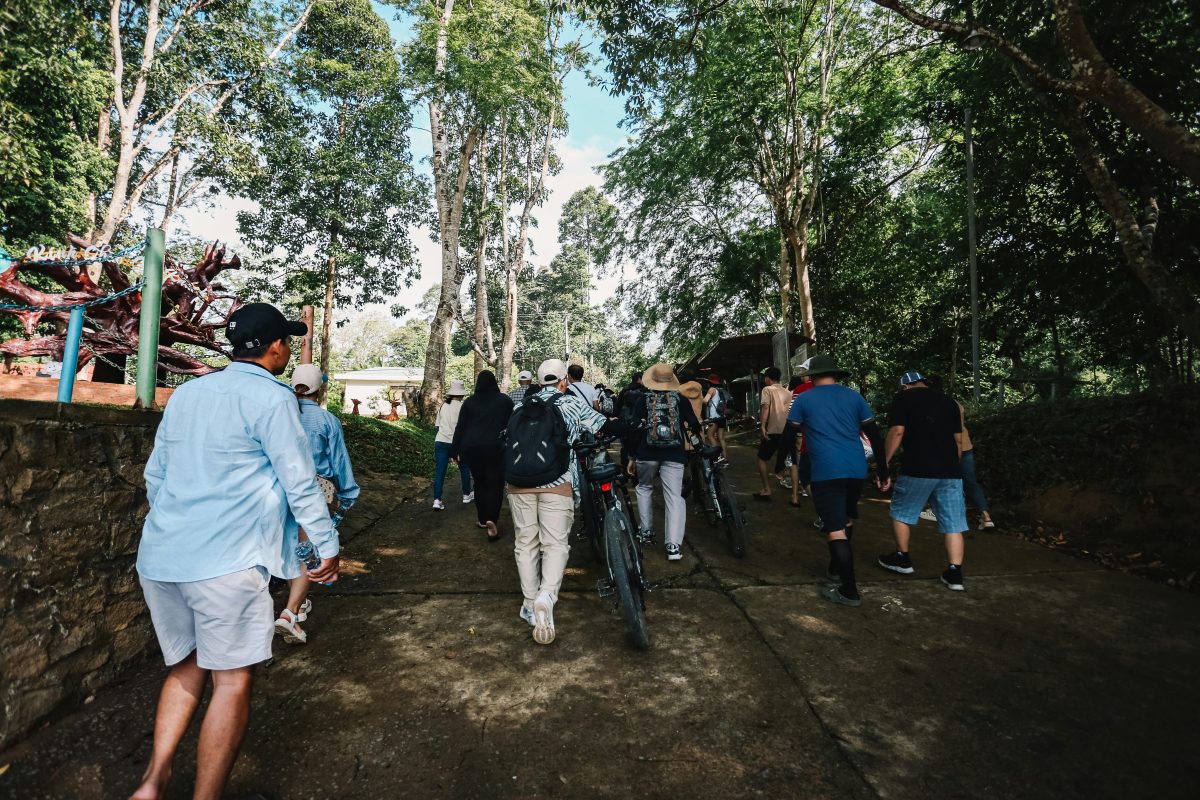
How social tourism is redefining travel with examples
Social tourism is evolving as travelers seek more meaningful and responsible ways to explore the world. Tourism research shows both social enterprise and for profit companies thrive when social tourism is an important aspect of operations.
Here are some of the top global trends in social tourism:
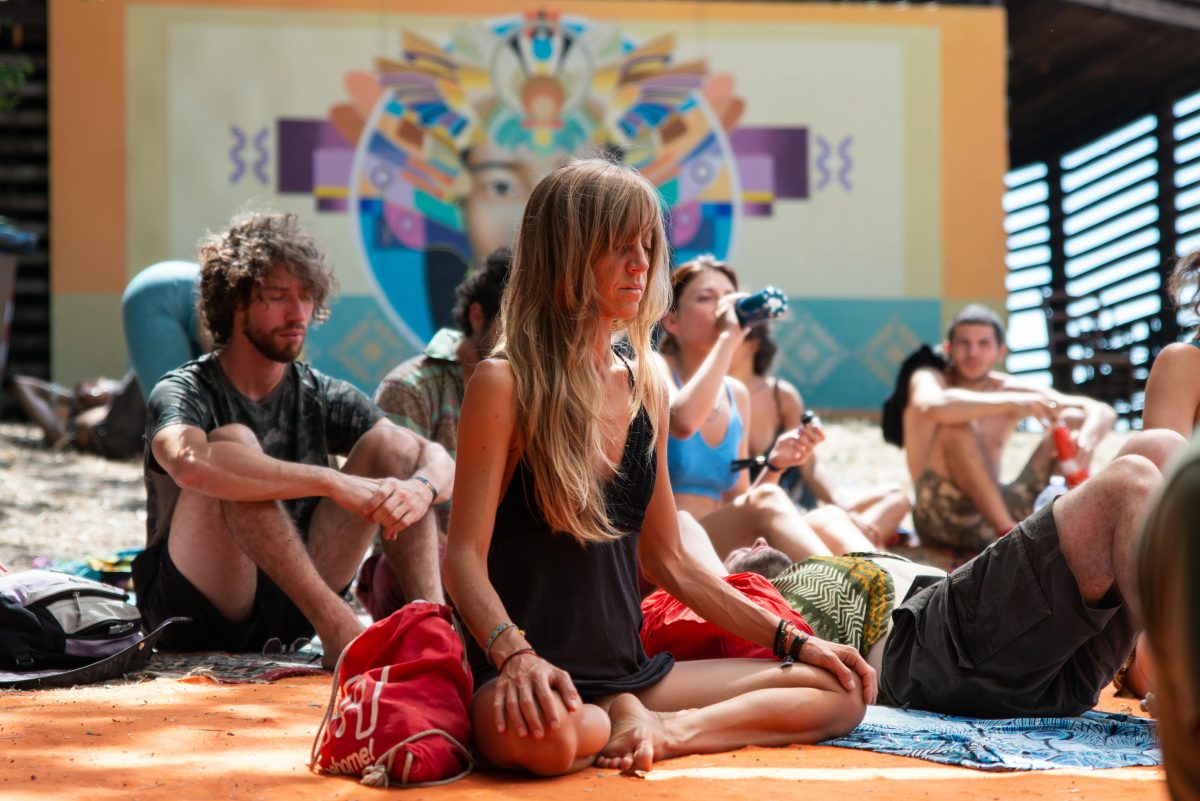
1. Growth of Community-Based Tourism
Trend: There is a rising demand for community-based tourism (CBT), where travelers engage directly with local communities, staying in locally-owned accommodations and participating in community-led activities.
Impact: This trend supports local economies and provides authentic cultural experiences, allowing travelers to connect more deeply with the places they visit.
Example: Chiang Mai, Thailand

Overview: Chiang Mai is a hub for cultural tourism and has seen significant growth in community-based tourism. The surrounding villages offer homestays and cultural experiences that allow visitors to engage with local traditions and lifestyles.
Highlights: Hill tribe experiences, handicraft workshops, and sustainable agriculture tours.
2. Emphasis on Sustainability
Trend: Sustainability is becoming a core focus in social tourism. Travelers are increasingly conscious of their environmental impact and prefer eco-friendly options, from accommodations to transportation.
Impact: Many tour operator companies are adopting sustainable practices, such as reducing carbon footprints, minimizing waste, and promoting conservation efforts. This trend is leading to the development of green tourism certifications and standards and provide attached social benefits.
Example: Copenhagen, Denmark

Overview: Copenhagen is known for its commitment to sustainability and has been recognized as one of the greenest cities in the world. The city promotes eco-friendly tourism through extensive bike lanes, green spaces, and sustainable urban planning.
Social Tourism Initiatives: Copenhagen offers community-based experiences that focus on sustainable living, such as guided tours of urban gardens, renewable energy projects, and eco-friendly neighborhoods like Vesterbro.
3. Inclusive and Accessible Travel
Trend: There is a growing movement to make travel more inclusive and accessible to people with disabilities, the elderly, and low-income individuals. This includes tourism professionals designing tours and accommodations that cater to diverse needs and aims to extinguish social exclusion.
Impact: Businesses are recognizing the importance of accessibility in tourism, leading to more tailored offerings that ensure everyone can enjoy travel experiences.
Example: Wheel the World

Overview: Wheel the World is a travel company dedicated to making adventure travel accessible for people with disabilities. They offer a wide range of accessible travel experiences, from city tours to outdoor adventures, all designed with inclusivity in mind.
Social Tourism Focus: Wheel the World collaborates with local communities and businesses to ensure that their tours are both accessible and supportive of local economies. They provide accessible accommodations, transportation, and activities in destinations worldwide, including Machu Picchu, Patagonia, and more.
4. Voluntourism with a Focus on Ethical Practices
Trend: Voluntourism, where travelers volunteer their time and skills in communities, is evolving to prioritize ethical practices. There's a shift away from short-term, superficial volunteering towards long-term, impactful projects that truly benefit local communities.
Impact: Ethical voluntourism is gaining traction, with a focus on programs that are community-driven, sustainable, and aligned with local customs rather than just the desires of tourists.
Example: Global Vision International (GVI)
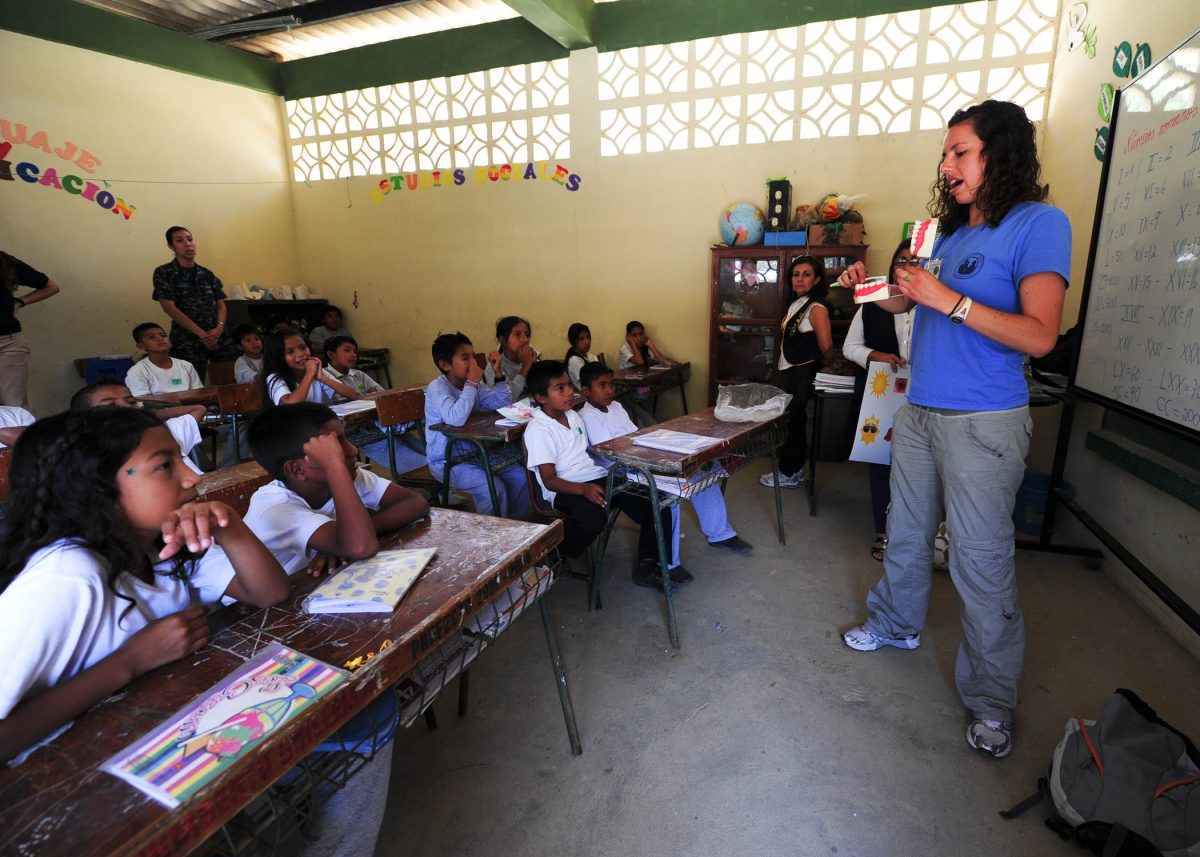
Wildlife Conservation in South Africa: Volunteers contribute to ongoing wildlife research and conservation efforts, including tracking animals, monitoring behavior, and assisting with anti-poaching initiatives.
Teaching and Community Development in Fiji: Volunteers work with local schools and community centers to improve education, promote health and wellness, and support local infrastructure projects.
Marine Conservation in Thailand: Volunteers participate in coral reef monitoring, beach cleanups, and environmental education programs aimed at protecting marine ecosystems and promoting sustainable fishing practices.
5. Cultural Preservation and Heritage Tourism
Trend: There is increasing interest in cultural preservation and heritage tourism, where travelers engage with and support the maintenance of local traditions, languages, and historical sites.
Impact: This trend is helping to preserve endangered cultures and heritage sites while providing economic benefits to communities. It also educates travelers about the importance of cultural diversity and history.
Example: Explora Rapa Nui on Easter Island, Chile

Overview: Explora Rapa Nui is a sustainable tourism initiative that focuses on preserving the rich cultural heritage and natural environment of Easter Island, one of the most remote inhabited islands in the world. The initiative is part of the Explora chain, known for its commitment to sustainable travel and deep cultural immersion.
6. Rise of Digital Nomadism and Social Impact Travel
Trend: With the rise of remote work, more digital nomads are seeking travel opportunities that allow them to contribute positively to the communities they visit. This includes participating in social wellbeing projects while living and working abroad.
Impact: This trend is leading to the development of coworking and coliving spaces that integrate social impact initiatives, allowing digital nomads to support local communities while enjoying a flexible lifestyle.
Example Impact Hub
Overview: Impact Hub is a global network of coworking spaces designed for social entrepreneurs, innovators, and organizations committed to creating positive social and environmental impact. With locations in over 100 cities worldwide, Impact Hub provides a collaborative environment where individuals and organizations can work, connect, and grow their impact-driven ventures.
7. Focus on Localized Travel Experiences
Trend: There’s a growing preference for localized travel experiences, where tourists explore off-the-beaten-path destinations and engage in everyday life activities of local residents.
Impact: This trend is helping to disperse tourism away from overcrowded hotspots, promoting more equitable distribution of tourism benefits and reducing the strain on popular destinations.
Example: Withlocals

- Overview: Withlocals is a global platform that connects travelers with local hosts who offer personalized, private tours and experiences in their cities or regions. The platform focuses on creating authentic, off-the-beaten-path travel experiences that allow visitors to engage with local cultures and everyday life.
8. Educational Travel and Lifelong Learning
- Trend: Educational travel is becoming increasingly popular, with travelers seeking experiences that offer personal growth, new skills, or deeper knowledge about the destinations they visit.
- Impact: Programs offering language immersion, craft workshops, historical tours, and environmental education are gaining popularity, appealing to travelers interested in learning and personal development.
Example: Learning Journeys by National Geographic Expeditions
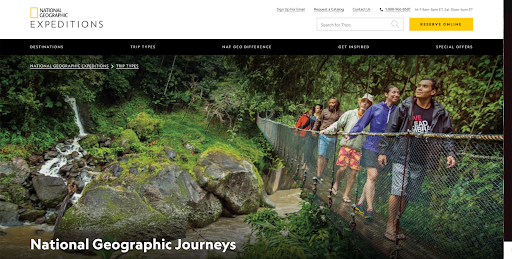
Overview: National Geographic Expeditions offers Learning Journeys that blend educational content with travel. These trips provide opportunities to explore diverse cultures, history, and environments through the lens of National Geographic's expertise.
9. Use of Technology to Enhance Social Tourism
Trend: Technology is playing a larger role in social tourism, from platforms that connect travelers with volunteer opportunities to apps that promote sustainable travel choices.
Impact: Tech-driven platforms like community tourism booking sites, virtual reality experiences that showcase destinations ethically, and apps promoting eco-friendly travel options are making it easier for travelers to engage in social tourism.
Example: Workaway

Overview: Workaway is a global platform that connects travelers with hosts offering volunteer opportunities in exchange for accommodation and meals. The platform emphasizes cultural exchange and community engagement, making it a popular choice for travelers seeking meaningful experiences while contributing to local projects.
10. Corporate Social Responsibility (CSR) Integration
Trend: More companies, especially within the tourism and hospitality industry, are integrating social tourism into their corporate social responsibility (CSR) strategies. This includes organizing employee volunteering trips, supporting local communities where they operate, and promoting responsible travel practices.
Impact: This trend enhances a company's reputation and contributes to the broader social tourism movement by embedding social responsibility into their business models.
Example: Intrepid Travel

- Overview: Intrepid Travel is a global adventure travel company known for its small-group tours that emphasize responsible travel, cultural immersion, and sustainable practices in its tourism policy. The company has made social tourism a core component of its CSR strategy, focusing on positive impacts for both travelers and the communities they visit.
11. Innovations in online travel marketplaces
Trend: Travelers are looking to spend travel money ethically, and with travel providers that value sustainability and other social initiatives. Travelers are also looking to make bookings that benefit local communities rather than large, third-party companies.
Impact: Purchasing travel experiences from people and teams committed to sustainability and social projects directly supports those important initiatives. And making direct bookings rather than through resellers helps more of the money travelers spend to stay local.
Example: Painted Circle
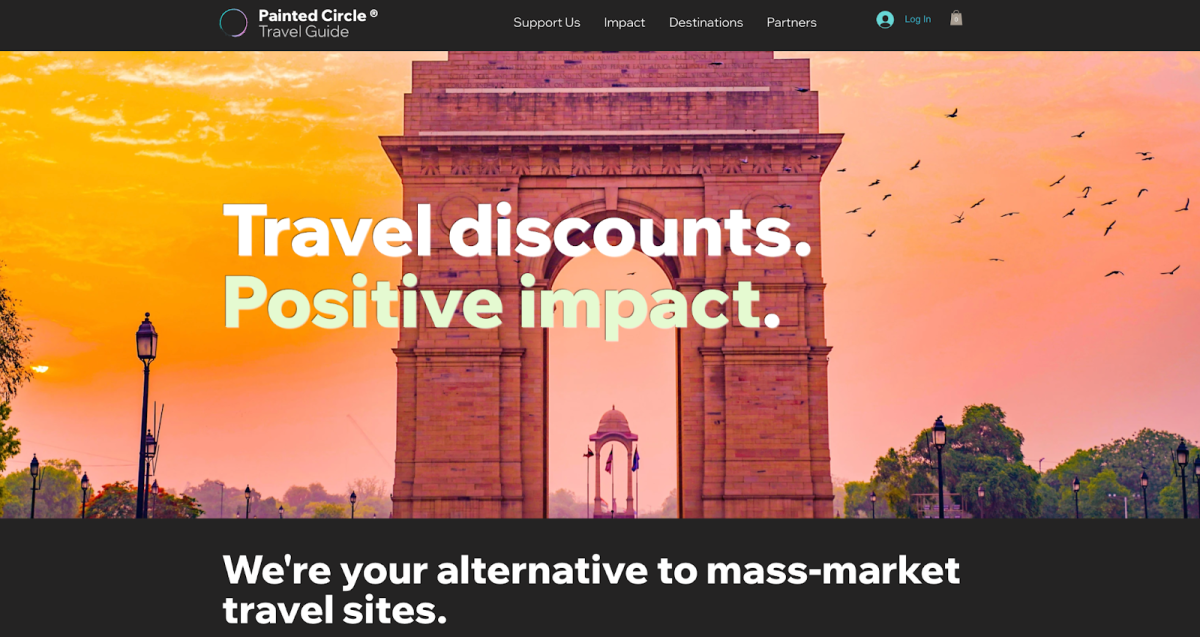
Overview: Painted Circle is an innovative travel marketplace that was actually created by tour operators. Unlike big travel resellers, Painted Circle only serves as an online travel guide that then helps travelers make direct bookings - this helps travel businesses keep more money local while also being able to offer better deals to travelers. Businesses can join for free here.
Social Tourism Initiatives: Painted Circle provides a free platform for travel businesses to showcase their efforts to promote inclusion, sustainability, and social impact. They also provide travelers the opportunity to access special offers and discounts through an innovative travel pass that helps even more money circulate to local economies and nonprofit organizations.
These trends reflect a broader shift towards more responsible, meaningful, and sustainable tourism industry practices. As social tourism continues to grow, it’s likely that these trends will evolve further, driven by changing consumer values and the global emphasis on sustainability and social impact.
How do you run a social tourism business?
Passion and purpose. For everything else, there is Zaui. Zaui is a reservation management system built specifically for the tourism, transportation, and destination management industries. A powerful platform for running your social tourism business. Schedule your demo of the industry’s most powerful booking engine and tour operator system.
Related Posts

What to Look for in a Travel Booking Software in 2026
Discover the essential features to consider when selecting a travel booking software in 2026 to streamline your travel booking process and enhance customer experience.

Zaui’s New Booking Policy Toolkit: Flexible Cancellations, Smarter Revenue Protection
Should you add a booking fee? Discover how this strategy can impact your revenue and customer satisfaction in our expert analysis.


Frequently Asked Questions
No. Zaui’s pricing is fully pay-as-you-go. You aren’t locked into any long-term contract. In fact, leading platforms emphasize this flexibility. Similarly, Zaui lets you start and stop anytime. You can change or cancel your plan freely, so you only pay for what you use.
Absolutely not. Zaui’s pricing is 100% transparent. We disclose all fees up front with no surprise add-ons or “sneak-in” charges. In fact, Zaui’s plans include all core features “without additional fees”. Industry experts note that hidden fees undermine trust so we avoid them entirely. All costs are clearly outlined in our pricing, and there are no extra setup charges or undisclosed surcharges at checkout.
Zaui integrates with major payment gateways (e.g. Stripe) so you only pay standard credit-card processing rates (roughly 1.9%+$0.30/transaction) and we don’t mark them up. Only the published platform commission is added on bookings. You also have full control over who pays the commission, we let you decide whether to absorb booking fees or pass them on to customers. In short, you’ll only pay the transparent booking commission and normal gateway fees, nothing extra.
Your onboarding and support are included in the price. We provide white-glove setup help and ongoing 24/7 support at no additional cost. Our dedicated customer-success team will guide you through every step, ensuring a smooth launch. You won’t pay extra for training or service other than the onboarding fee; it's all built into your plan.
You can schedule a free demo with our team. Our Zaui ninjas will walk you through pe how Zaui can work for your business and highlight opportunities to grow with our advanced features all without any upfront payment. This way, you can feel confident it’s the right fit before making a commitment.
Of course. Zaui’s plans are fully flexible. You can upgrade or downgrade at any time to match your needs, without penalties. You can move to a higher tier or back down easily, and your billing adjusts automatically.
No. Zaui does not charge its commission on offline/manual bookings. “No fees on offline bookings” You only pay the commission when a booking is processed online through our system. Manual reservations (or bookings from partner channels we set up for you) incur no extra platform fee. (30% or less)
All of Zaui’s core features are included in your plan at no extra charge. We believe in value and transparency: Zaui provides over 15 advanced features (Google Things to do, reporting tools, marketing tools, reports, etc.) at no additional cost. Many competitors charge extra or require higher plans for the same features, but with Zaui you get the full suite of tools in one package. Any optional add-ons (if any) will always be clearly listed and optional there are no surprise paid upgrades for standard features.
Each Zaui plan is designed for clarity and fairness, following industry best practices. You can trust that our pricing is transparent and flexible, with the support you need built in.
Extra accounts- unlimited agents, resellers, user




